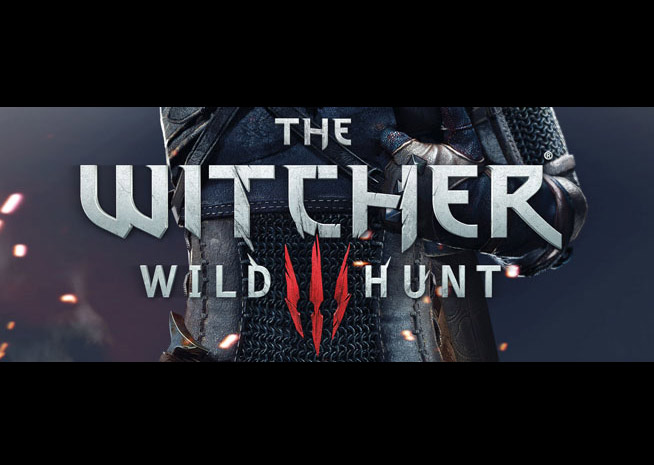Plays Key Role in Creating The Witcher 3

“The feedback from players is amazing. I am on Twitter, seeing all these hundreds of thousands of tweets praising the game, telling the world how they laughed, or cried, or raged.”
– Nikolas Kolm, 2011 Game Art & Design diploma, The Art Institute of Vancouver
The Role of Quest Designer
Working as the quest designer on one of today’s most popular games, The Witcher 3 meant long days, overcoming challenges, and playing the game—a lot. But Nikolas Kolm takes it all in stride, focusing on the positive feedback he’s received from people around the world.
As a quest designer at CD Projekt RED, Nikolas collaborates with the story team to bring the overall plot to life. “They divvy [the story] up into sections of the game which we then take and turn into quests that make up the main storyline. The writers tell us what is roughly supposed to happen, for example, ‘in this quest, Geralt will track Yennefer and find her in the end,’” he says.
Nikolas and his team then sit down with the story team to refine this into more specifics. “I will write a design for the quest, detailing the steps the player needs to take to get through it and any obstacles that they might encounter. This document is reviewed by peers and leads of both Quest and Story department.”
After approval, Nikolas goes to work choosing locations, deciding on paths, enemy placement, where and when dialogs and cut scenes should happen, and what should be said in those scenes. This process goes on until peers, leads, and the game director are happy with the result.
Not unexpectedly, Nikolas ran into many obstacles during the design process. “Due to the nature of game development, we will always run into some problems. These can range from technical to narrative to resource-related. I cannot go into too many specifics for this, but generally, a lot of the work, specifically in the later stages of production turns out to be firefighting, that is, realizing previously unpredictable issues and dealing with them as efficiently as possible.”
To work through these challenges and identify/fix any issues, Nikolas and his team played the game over and over. “This is a very all-hands-on-deck approach. You just have to put in the effort because you want the game to be as good as possible.”
Worth the Work
The time and challenges are worth it when he hears the positive buzz about the game, which has sold over 4 million copies and won over 200 awards. “I see fan-videos being made where people capture their reactions to key events in the game and I see them genuinely moved. We get thank you e-mails for the tiniest things. When we are at gaming events, fans come up to us and express their love for the game and the franchise. It is almost overwhelming to see these reactions.”
He’s even received accolades in person, when he least expects it. “I was in a hotel and I realized I had forgotten something and wanted to turn back, but the waitress came to me and started asking me about [the game] because I was wearing a Witcher 3 shirt. She asked if that was the Wild Hunt game, then she saw the ‘Dev Team’ printed on the back of the shirt and asked if I really worked there. I told her yes and she just asked me to wait for a moment. She vanished and came back with her husband who proceeded to express his love for the game and how honored he was to meet someone who worked on it. It felt almost surreal. To have helped create something that evokes such emotions, it’s humbling and amazing."
Today, Nikolas and his team have begun to focus on DLC and expansion content. “We are in the middle of building the quests for the two major expansions that were announced. We still have quite some work to do, but it will be an additional 30 hours of content when the two expansions come out, so we want to make sure players get the most enjoyment out of it.”
Entering the Gaming Field
Nikolas, who in 2011 earned a Game Art & Design diploma from The Art Institute of Vancouver, recommends that students who are interested in a career in his industry understand how hard the work is. “Build mods, build quests in popular tools. There are so many out there now. It doesn’t matter which, it just needs to show that you understand what makes a quest work. Find the communities that share these things and share your work. Be willing to take criticism and get better!”
While it can take time to land a job in the gaming field, Nikolas advises students not to give up. “At first, it may seem a bit daunting to land a job in this industry. Lots of studios require experience and a lot of it. Don’t be afraid to submit your applications to positions that you feel you are qualified for but don’t necessarily have all the requirements in terms of years. But submit it with a SOLID demo quest/level.”
His last words of advice? “Have your own experiences. Go out and experience the world because if you want to create experiences for others, you should have inspiration to draw from.”



